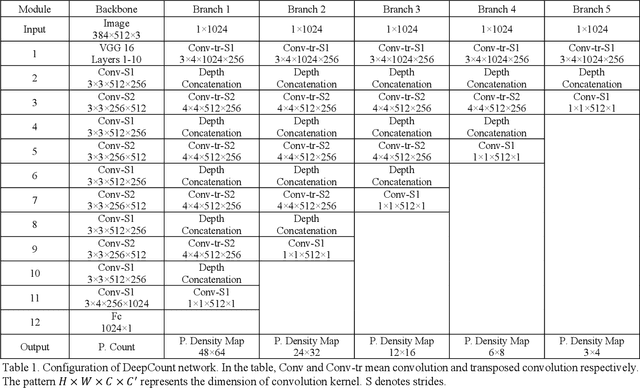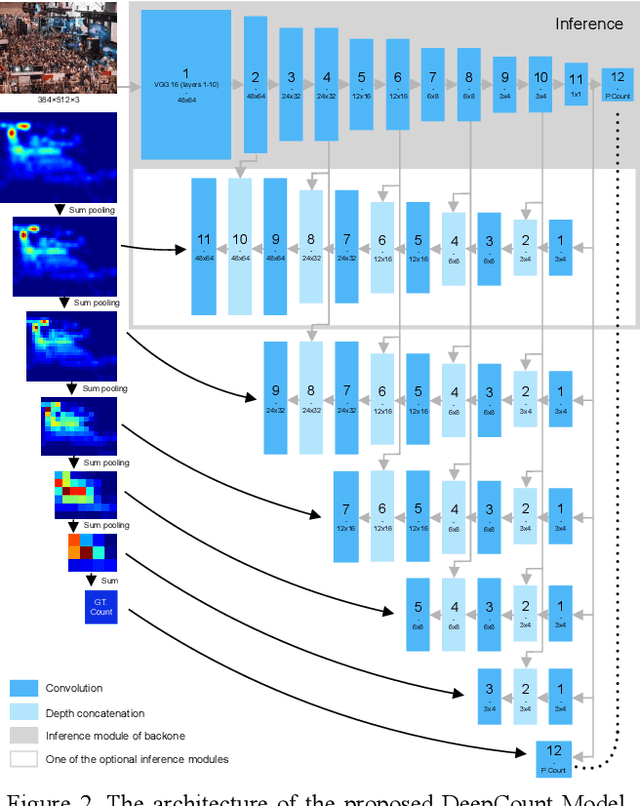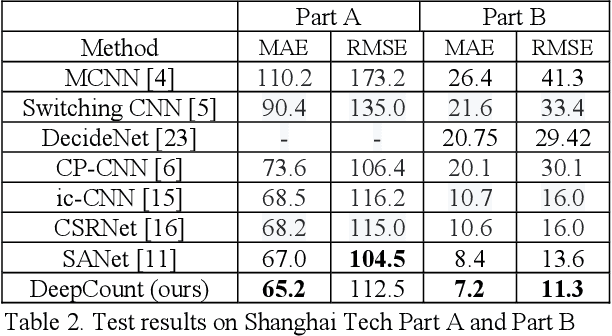Deep Density-aware Count Regressor
Paper and Code
Aug 09, 2019



We seek to improve crowd counting as we perceive limits of currently prevalent density map estimation approach on both prediction accuracy and time efficiency. We show that a CNN regressing a global count trained with density map supervision can make more accurate prediction. We introduce multilayer gradient fusion for training a densityaware global count regressor. More specifically, on training stage, a backbone network receives gradients from multiple branches to learn the density information, whereas those branches are to be detached to accelerate inference. By taking advantages of such method, our model improves benchmark results on public datasets and exhibits itself to be a new solution to crowd counting problem in practice.
 Add to Chrome
Add to Chrome Add to Firefox
Add to Firefox Add to Edge
Add to Edge